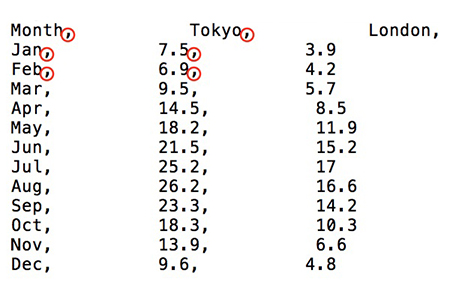
csv is the abbreviation of [comma-separated values], which represents a plain text file format containing a list of data. These csv files are usually used to exchange data between different applications.

csv files may sometimes be called character-separated values or comma-delimited files. They mostly use the comma character to separate (or delimit) data, but sometimes other characters such as semicolons are used.
Structure of CSV files
CSV files have a fairly simple structure. It is a comma separated list of data. For example:

This is a simple CSV file. It can be seen that the CSV file consists of commas, data and newlines; newlines separate rows and columns, and commas separate each data value.
Most CSV files can be more complex than this and can contain thousands of lines, more entries per line, or long text strings. Some CSV files may not even have a header at the top, and some may use quotes to surround each bit of data, but this is the basic format.
The above is the entire content of this article, I hope it will be helpful to everyone's study. For more exciting content, you can pay attention to the relevant tutorial columns of the PHP Chinese website! ! !
The above is the detailed content of what does csv mean. For more information, please follow other related articles on the PHP Chinese website!